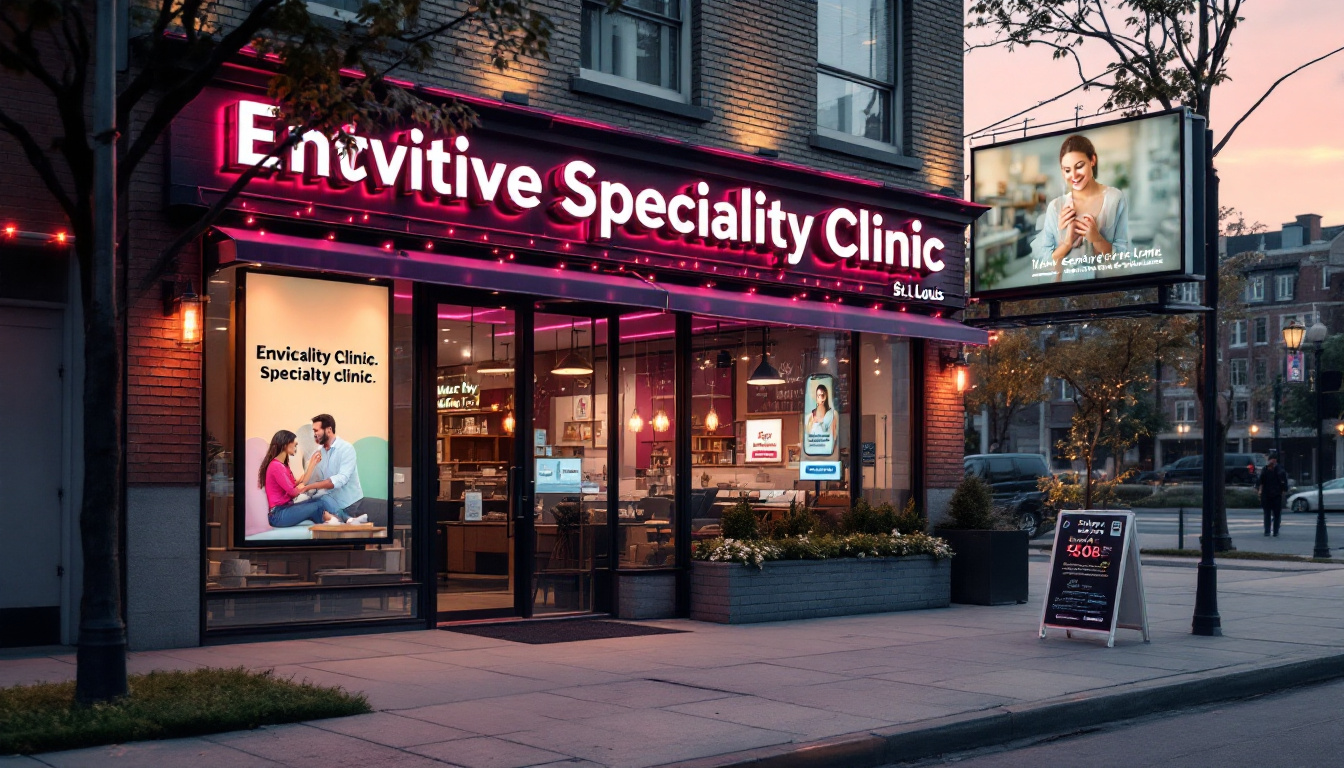10 Quick PPC Tips for Small Businesses in St. Louis, MO

PPC (Pay-Per-Click) advertising can be an incredibly effective way for small businesses in St. Louis to reach their target audience. With a bustling economy and a diverse demographic, crafting a successful PPC strategy can help local businesses thrive. In this article, we’ll explore ten practical tips that can make your PPC campaigns more effective, drawing from best practices and local insights.
Tips for crafting compelling ad copy
Ad copy is the first impression potential customers have of your business. To capture attention and drive clicks, your ad copy must be both engaging and informative.
Start by highlighting what makes your business unique. Instead of just stating the services you offer, convey the value propositions that set you apart from competitors. For instance, if you run a local bakery, instead of saying "fresh pastries," you could say "handcrafted pastries made with locally-sourced ingredients." This not only emphasizes quality but also appeals to consumers who value sustainability and local businesses. Consider incorporating storytelling elements that resonate with your audience's emotions; for example, sharing the inspiration behind your recipes or the journey of your business can create a deeper connection with potential customers.
Additionally, use strong action verbs to encourage users to take immediate action. Phrases like "Order Now" or "Book Your Free Consultation Today" create a sense of urgency and can effectively prompt users to click through to your website. Make sure to also include relevant keywords that your target audience might search for, which can significantly impact your ad's visibility in search results. Furthermore, consider the tone and voice of your ad copy; whether it's playful, professional, or conversational, aligning your message with your brand identity can enhance recognition and trust. Don't forget to test different versions of your ad copy to see which resonates best with your audience, as A/B testing can provide valuable insights into what drives engagement and conversions.
How to use geo-targeting effectively
Geo-targeting is a powerful feature in PPC advertising, especially for small businesses that cater to a local clientele. By specifically targeting individuals in St. Louis, you can ensure that your ads are seen by potential customers who are most likely to convert.

Begin by defining the geographic parameters for your ads. Google Ads, for example, allows you to set targeting options by city, region, or even a radius around a specific address. This means you can target individuals specifically searching for products or services in the St. Louis area.
Moreover, consider tailoring the messaging of your ads based on the geographic location. For example, mention local landmarks or use familiar phrases that resonate with St. Louis residents. This local touch can make your ad more relatable and increase click-through rates.
Additionally, leveraging local events and seasonal trends can significantly enhance the effectiveness of your geo-targeting strategy. For instance, if there’s an upcoming festival or sporting event in St. Louis, you can create ads that highlight your business's participation or special offers related to that event. This not only captures the attention of local customers but also positions your business as an integral part of the community, fostering a sense of connection and loyalty.
Furthermore, analyzing location-based data can provide insights into customer behavior and preferences. Utilizing tools like Google Analytics allows you to track which geographic areas yield the highest engagement and conversion rates. By understanding where your most valuable customers are located, you can refine your targeting strategies, allocate your budget more effectively, and ultimately drive better results for your PPC campaigns.
Best practices for budget allocation
Managing your PPC budget wisely is crucial to the success of your campaigns. Small businesses often operate within tight budgets, making effective allocation even more essential.
A popular strategy is to start with a daily budget that reflects measurable metrics, such as cost-per-click (CPC) and conversion rates. It’s useful to monitor these metrics closely and allocate your budget towards the ads or keywords that are performing well while perhaps pausing those that aren’t yielding results.
Additionally, keeping an eye on seasonal trends can provide insights into when your audience is most likely to seek your services. For instance, a local gardening service may want to increase their PPC spend during spring when residents are more inclined to start new gardening projects.
Another effective approach is to segment your budget based on different campaigns or target demographics. By analyzing the performance of various segments, you can identify which groups yield the highest return on investment (ROI). For example, if you notice that a specific demographic, such as young homeowners, is responding well to your ads, consider allocating a larger portion of your budget to reach this audience more effectively. This targeted spending can lead to improved engagement and higher conversion rates, maximizing the impact of your advertising efforts.
Furthermore, leveraging A/B testing can significantly enhance your budget allocation strategy. By running two variations of an ad with slight modifications, you can determine which version resonates more with your audience. This not only helps in optimizing your current campaigns but also informs future budget decisions. For instance, if one ad copy outperforms another, you can confidently allocate more budget towards that winning version, ensuring your advertising dollars are spent in the most effective way possible.
Why testing is crucial in PPC campaigns
In the realm of PPC advertising, testing different strategies is essential for optimization. Without testing, you miss out on valuable insights that can lead to better performance.
Begin by implementing A/B tests for your ad copy, targeting strategies, and even the formats of your ads. For instance, you could create two versions of the same ad with slightly different headlines and measure which one gets a higher click-through rate. This approach allows you to systematically improve your campaign.
Furthermore, establish a consistent testing schedule. Ad performance can fluctuate based on various factors such as consumer behavior, competition, and market trends. Regularly testing elements of your PPC campaigns ensures you remain agile and responsive to changes.
In addition to A/B testing, consider multivariate testing, which allows you to experiment with multiple variables at once. This method can provide deeper insights into how different elements interact with one another. For example, you might test various combinations of headlines, images, and calls to action to discover the most effective combination. By analyzing the results, you can refine your approach and create ads that resonate more strongly with your target audience.
Another important aspect of testing is the analysis of landing pages. Your ad may attract clicks, but if the landing page does not deliver a seamless experience or relevant content, you risk losing potential conversions. Testing different landing page designs, layouts, and content can reveal what best captures the interest of your visitors and encourages them to take action. By optimizing the entire user journey—from ad click to conversion—you can significantly enhance the overall effectiveness of your PPC campaigns.
How to use extensions to enhance ad visibility
Ad extensions are a fantastic way to enhance your PPC campaigns by providing additional information to users without extra cost. These extensions can significantly improve the visibility and effectiveness of your ads.

Common types of ad extensions include site link extensions, which allow users to navigate directly to specific pages within your website, and call extensions, which enable users to call your business directly from the ad. By using site link extensions, you provide potential customers with more options and entry points to explore your business. For example, a local restaurant could include links to their menu, reservation page, or reviews.
Implementing location extensions can also be beneficial. This feature displays your business address alongside your ad, making it easier for local customers to find you. Given St. Louis's vibrant community atmosphere, showcasing your local presence can make a significant difference in attracting more customers.
Another powerful type of ad extension is the promotion extension, which allows you to highlight special offers or discounts directly in your ad. This can be particularly effective during seasonal sales or for new product launches. For instance, a retail store could use promotion extensions to advertise a limited-time discount, enticing potential customers to click through and make a purchase. By clearly communicating value, you not only capture attention but also encourage immediate action, which can lead to higher conversion rates.
Additionally, utilizing structured snippet extensions can further enhance your ads by providing specific details about your products or services. These snippets allow you to showcase aspects such as brands, types of services offered, or product categories. For example, a travel agency might use structured snippets to list various vacation packages, such as “Beach Getaways,” “Adventure Tours,” or “Cultural Experiences.” This added layer of information can help users quickly identify whether your offerings align with their interests, ultimately driving more qualified traffic to your site.
Conclusion
By following these ten quick PPC tips, small businesses in St. Louis can develop more effective advertising strategies that engage their target audience. Remember, the world of PPC is dynamic; being adaptable by continuously testing and optimizing your campaigns can lead to long-term success. Harnessing the local demographic and using the right tools can significantly elevate your marketing efforts.
Take the time to refine your approach and watch as your business flourishes in the competitive landscape of digital advertising. With the right strategy, your PPC campaigns will not just draw traffic but also convert clicks into loyal customers.

As a Google Ads expert, I bring proven expertise in optimizing advertising campaigns to maximize ROI.
I specialize in sharing advanced strategies and targeted tips to refine Google Ads campaign management.
Committed to staying ahead of the latest trends and algorithms, I ensure that my clients receive cutting-edge solutions.
My passion for digital marketing and my ability to interpret data for strategic insights enable me to offer high-level consulting that aims to exceed expectations.





























